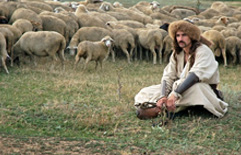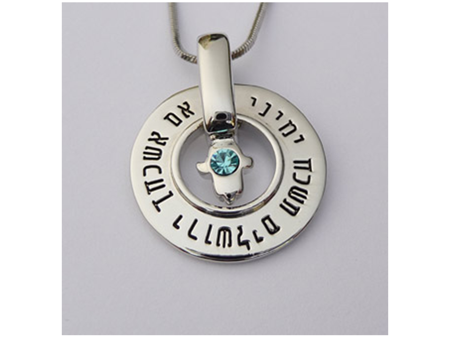
Faithful Shepherd
The moment a child is able to throw off the yoke of an anger-prone parent, or the minute he thinks that the angry parent won't know what he is up to, he will do as he pleases...

Anger is the basic indication of lack of refinement. Contrastingly, self-control expresses refined character. Our sages teach that a person's true character is revealed in his anger (or lack thereof). Even nations boast enlightenment and culture as expressed by their restraint and self-control.
Even if a person is not habitually angry, he must still remember that whenever he becomes angry, he loses his effectiveness as an educator or a parent.
Until I understood that anger is the complete opposite of education, the Evil Inclination could occasionally entice me to be strict and angry with my children. But once I understood that anger destroys education, I decided that nothing my child can do would make me angry.
Anger stems from a lack of spiritual awareness. Spiritual awareness – namely, internalizing the principles of emuna and realizing that Hashem runs the world and does everything for the best – is the tool that a  person needs to overcome anger and attain true mercy.
person needs to overcome anger and attain true mercy.
Without spiritual awareness, a parent is liable to lose hope for a child that is having difficulties, particularly with learning. The parent might think that the child is a lost cause. This is a terrible conclusion. If the parent would have stronger spiritual awareness, he'd realize that he must love this child, no matter how hopeless he seems. The parent wouldn't lose hope and would turn to Hashem with greater efforts of prayer for his child. He'd continue to give the child love, not cast him away just because he is not a success story.
The main type of "fear" that a child must feel toward his educator is awe, not fear of the educator's anger and punishments. Fear of punishment does not implant positive character traits into the child's soul. In the family setting, he simply fulfills his parents' will because he is afraid. The moment that he is able to throw off their yoke, or the minute he thinks that they won't know what he is up to, he will do as he pleases.
A child who simply fears his parents but is not in awe of them can easily become rebellious and scornful. Sometimes the child develops the boldness to ignore his parent's anger and then the parent is really left powerless. Like a tyrannical despot, the angry parent loses his power when a child is no longer intimidated by the anger. Such a parent completely loses control and Heaven only knows where this can lead.
I once saw a parent about to hit his child; the child responded chillingly calm: "No problem, hit me as much as you want! You can also kill me!" The parent was shocked. He had lost all his power against the boy and had no way to make him listen to him. What could he do?
Since anger destroys one's Divine image, we can also understand that when a man argues with his wife, he forfeits the respect that she had for him. He is supposed to be the role model that is above and beyond small-mindedness; that knows how to control himself and understand the other side. By displaying anger, his wife loses her awe of him and scorns him.
As mentioned earlier, the anger issue is much more relevant to the father, who must completely nullify this character trait. The father is the role model held in awe at home, while the mother, who cares for her children minute-by-minute, is less held in awe by her children. The mother has to work on displaying love for her children. Of course, she must also work on her anger, but it is not as critical as it is for the father. For when the father gets angry, it completely undermines his role as educator. Paternal anger causes great sorrow in the home, both to the children and the mother. When the mother becomes angry, as a result of pressure and overexertion, it makes much less of an impression and passes quickly.
A prime task in child education is to instill love for the values of Torah into the child's heart. We must therefore praise and personally exemplify these values, such as love for integrity, love for truth, love of the Torah, love of people, love for kindness, and so forth. The love and ethics that children acquire at a young age will stand by them their entire lives. Parents should encourage and positively reinforce a child's upright behavior, praising him for his honesty, kindness, diligence or any other upright behavior.
When parents use the whip of negative reinforcement, readily threatening, yelling and punishing, the child will despise whatever they're trying to teach. When a parent tries to use anger as a means of education, he is not educating at all, for anger does not instill love, but rather intimidation and hatred.
Every educator – a teacher or parent – must be a beloved and admired role model, not a person who instills fear in others because of his unchecked anger. The educator must conduct himself with fine character traits and arouse the love and admiration of his students. They then are open to receive from him and to emulate him. This is particularly true of parents; when children admire their parents, they readily internalize the parents' values and good character traits.
Whatever is deeply internalized in the parent will be deeply internalized by the child. This can only happen if the parent doesn't practice what he preaches, living his way of life pleasantly and not angrily forcing his opinion on his children.
To you, the teacher, educator, principal, and advisor – everyone who is involved with educating children: How fortunate it is that Hashem chose you to be the shepherds of His holy flocks, His children. Just as He chose Moses to be the faithful shepherd of His nation, Israel, so Hashem has chosen each and every one of you to be the faithful shepherd of His flock. May you be successful!












Tell us what you think!
Thank you for your comment!
It will be published after approval by the Editor.